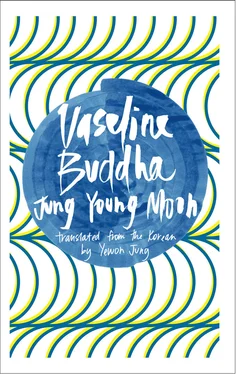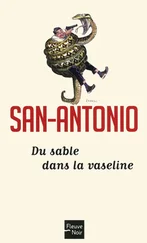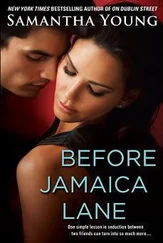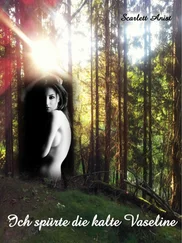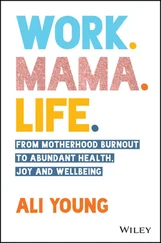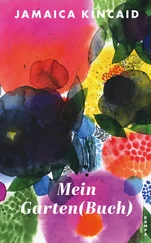And that night, I went to a city nearby that was somewhat large, where I hadn’t planned on going, and went to a club and met a woman of Indian descent, who was born in Madagascar and had moved to France. (Now, having talked about a journey I took in order to see someone in a story, a journey on which nothing happened, I can finally talk about something that has to do with Madagascar, where I’ve never been and am not sure if I’ll ever go.) We had a drink together and chatted in English — she said she was waiting for her boyfriend — after which we somehow ended up dancing — it seemed that she was using me to pass the time until her boyfriend showed up, and I was eager to be used in that way — and said goodbye, touching cheeks lightly as the French do — her boyfriend never showed up — and I took the night train and returned to where I was staying. Anyway, there was something unusual about her, found in unusual animals living only in Madagascar, but I couldn’t put my finger on it. She had moved to France when she was young and didn’t remember much about Madagascar, and didn’t talk much about it, but when I told her about my encounter with a rogue cow around a grazing land somewhere, and how I’d felt tempted to seduce it — the feeling was a mixture of a desire, not unlike the desire to seduce a seductive woman, and a desire that was unlike it, which made it even more complicated — but not knowing how to seduce it — I had nothing to seduce it with, and I couldn’t seduce it with myself — and not having considered what to do after seducing it — we could, of course, look into each other’s eyes, our eyes having met momentarily, or walk side by side — I stayed with the cow for a little while, and then we each went our way, she showed interest and asked me if I was trying to seduce her, with a pretty smile on her face, and when I told her I wasn’t sure, she said that she, too, had once felt tempted to seduce a pretty bird, or even a seductive chair in a furniture showcase. And then she said that the most beautiful scene she had ever witnessed was something she saw as a child, a herd of cattle returning home through baobab trees against a setting sky. I felt as if I could see a little girl driving cattle through baobab trees against a setting sky. But I didn’t know what she felt as she drove cattle through baobab trees, or saw someone drive cattle. Half-Indian and half-Caucasian, she seemed like a chameleon to me, and thinking that on the return train, I thought that I might go to Madagascar someday.
At any rate, Madagascar seemed like a decent place to tell someone that you might visit even though you weren’t actually going to, and when I was at home by myself, doing nothing, I felt like a chameleon, so when someone asked me why I was thinking about going to Madagascar, I said it was because I wanted to see the chameleons there.
My favorite moments from travels are those that stir or grasp my heart in gentle but strong ways, which make it possible for me to go on traveling. And the things that happen at such moments are actually nothing at all, things that come to light only through those moments, after which they vanish almost without a trace, but remain etched in my subconscious mind, and are in fact more like ordinary things.
A long time ago, I went to Rome, and after checking into a hotel near the Rome Central Station, from which the Colosseum could be seen — I’d wandered around downtown Rome for a couple of days, but I hadn’t felt much of anything — I stayed cooped up in the hotel room for three days, regretting that I’d come to Rome without a particular reason. I spent a long time lying still on the neatly made bed, without unpacking my suitcase or taking my coat off, glaring at a shoddy little replica of the ancient Roman Colosseum on the desk in the room. I wasn’t sure what I was doing in Rome, a city of ancient historical sites. Generally, when I was doing perfectly nothing at all, I felt as if I had at least a little idea of I was doing, but that wasn’t really the case then. So I thought that doing or not doing something when it didn’t matter what you did was certainly different from doing something when you had to do it, a thought that made me wonder if I was thinking right, and I thought that there was everything I needed there, with nothing that wasn’t there, and thinking that it didn’t really make sense, I went to the Colosseum in the middle of the night and saw stray cats roaming around, and left Rome as if to flee from them.
And I went to New York for several days one cold winter and stayed in the hotel room for most of my time there, and at that time, too, I wasn’t sure why I had come to New York and what I wanted there. Feeling a certain kind of comfort in a hotel room that was cleaned every day, removing of all traces of the person who had stayed there the night before, and in which a neutral world of objects was maintained, regardless of the distinctive or indistinctive nature of the room, I took note of what difference that was there, if any, between the perplexity you feel in everyday life and the perplexity you feel in a somewhat unfamiliar place, and dared not go outside, trying to decide if I should plunge uncomfortably or willingly into the somewhat new feeling of perplexity. And I was led to contemplate a thought that wasn’t new at all, that the perplexity was a result of the boredom that arises from a vague state in which you don’t know what to do, and the awkwardness that arises from a state so comfortable that it makes you shudder.
Looking at the curtains flapping in the open window, I thought that I wouldn’t go outside unless a gigantic sailboat, with a full load and the sails taut with wind, entered through the window. So that was the first time I came up with a specific and metaphorical reason for, and tried to justify, staying somewhere doing nothing, feeling so alone, and at the same time, befogged, and much later, on that early morning when a thief tried to break into my house, I felt the same way again. (When traveling, I liked to spend a lot of time looking out the window and watching people pass by, or just staying in the hotel room, not doing anything different from what I did when I was home, and the same was true of the time I stayed cooped up in my room, looking out the window all day and watching flocks of big black birds flying at regular intervals, crying dismally, as I listened to Messiaen’s string quartet, which I hadn’t heard since I heard it very long ago on the radio, which I normally almost never listened to, but had turned on and kept on because I didn’t want to bother turning it off, the morning after being greatly disappointed at a museum exhibiting the works of a famous surrealist painter, which I’d visited the day before, while staying in Brussels for just two days in the middle of one winter.)
And I turned on the television thinking that there were things I could do because I didn’t know what it was that I wanted, and while randomly flipping through the channels, I came across a movie. It was a movie called “Trash,” directed by Paul Morrissey, who had also worked with Andy Warhol. The movie was one without much of a storyline, in which trashy hippies who spent time mostly in a room, stoned, looking at something or staring off vacantly, or saying or not saying something that did or didn’t make sense, did nothing but say trashy things to each other and do trashy things, from the beginning to the end, just as the title indicated — they actually lived off trash, buying drugs with the money they got from selling the trash they picked up. But the movie, which I watched without any expectation, about completely degenerate, lethargic people, and made you feel despondent, was one that showed you how powerful saying nothing could be, and became one of the best movies I’ve seen.
After watching the movie, I thought once again that living as a Buddhist monk at least once in your life, as most men do in a certain Asian country, or as a hippie for a period in your life, could be something essential in life, that brings out two things that are the most deeply rooted in human nature and are considered polar opposites, but in fact aren’t that different from each other.
Читать дальше
